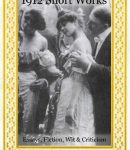
1912: Short Works Collection
This is a collection of public domain works either published in 1912, or written in 1912 and published before 1923. The accent is on non-fiction but a few short stories are included. [chương_files]

This is a collection of public domain works either published in 1912, or written in 1912 and published before 1923. The accent is on non-fiction but a few short stories are included. [chương_files]
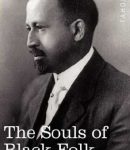
“Few books make history and fewer still become the foundational texts for the movements and struggles of an entire people….” One such great work was The Souls of Black Folk by William EB Du Bois. Published in 1903, it is a powerful and hard-hitting view of sociology, race and American history. It became the cornerstone of the civil rights movement and when Du Bois attended the first National Negro Conference in 1909, he was already well-known as a proponent of full and unconditional equality for African Americans. In the following year, he became one of the co-founders of the National Association for the Advancement of Colored People (NAACP). In fact, the word “colored” was suggested by Du Bois instead of “black” to include people of color everywhere in the world. Du Bois was appointed Director of Publicity and Research of the NAACP and his main duty was to edit and bring out NAACP’s monthly journal The Crisis. The journal also served as a vehicle for his thoughts on socialism, black activism, unionization, inter-racial marriage, women’s rights and combating racism in all spheres of life. The Souls of Black Folk is a series of essays on different subjects. The theories and ideas contained in it went on to become the key concepts that guided strategy and programs for civil rights protests in America. In this work, Du Bois discards Booker T Washington’s concepts of “accommodation” of white supremacy and propounds that this would only lead to further oppression of African Americans. […]
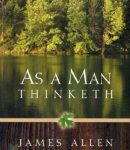
“A man is literally what he thinks, his character being the complete sum of all his thoughts,” is one of the quotes from James Allen’s classic self help books, As a Man Thinketh. Published in 1902, it provides many more such insightful concepts on the power of thought and its effect on a human being’s personality and behavior. This volume is more of a literary essay than a complete book and its title is based on a Biblical proverb, “As a man thinketh in his heart, so is he.” Taking this piece of ancient wisdom further, James Allen explores the far-reaching effects of the inner workings of a person’s mind and motivation. He proposes that projecting one’s own desires, goals and needs in the outer world can provide clues to a person’s character. Thinking and the subconscious mind are assumed to be hidden from the outside world, and hence powerless to change the course of events or circumstances of one’s life. However, in this book, Allen presents ideas that can harness this subterranean force and bend our lives to our will if we so choose. James Allen was a British writer who wrote mostly about everyday philosophy for the lay person and was in a sense, a pioneer of the self help movement. His books and poems were inspirational pieces, meant to help people realize their own powers and take charge of their lives rather than being mere tools in the hands of destiny. Born in a working class family […]
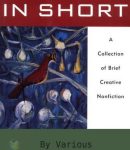
A collection of ten short essays or other short nonfiction works in the public domain. [chương_files]
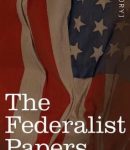
In order to promote the ratification of the United States Constitution in the late 1780s, Alexander Hamilton, James Madison and John Hay wrote a series of 85 articles and essays explaining their reasons to support the constitution. Most of these articles were published in The Independent Journal and The New York Packet and they later became known as “The Federalist Papers.” In reading the articles, one will encounter very interesting issues like Hamilton’s opposition to including the Bill of Rights in the Constitution and why he thinks a Union is better than a Confederation. He opposed the inclusion of the Bill of Rights in the Constitution because he thought that people would later interpret it as the only rights guaranteed to the people. He also supported the formation of the Union largely because of the economic benefit it would have to the states. “The Federalist Papers” aren’t just a series of articles that history students read. Their contents have been used as a reference in many US Supreme Court decisions which make this book still very influential today. [chương_files]
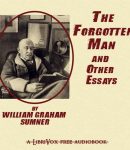
Sumner’s popular essays were to give him a wider audience to distribute his anti-imperialism, his advocacy of free markets and the gold standard. He also had a long term influence over modern American conservatism. This is the final collection of his essays and is edited by Albert Galloway Keller. It concludes with The Forgotten Man where Sumner argued that, in his day, politics was being subverted by those proposing a “measure of relief for the evils which have caught public attention. (Summary by Michele Eaton ) [chương_files]

Calling men the “Bawling Brotherhood,” Sarah Grand penned a lively essay on The New Aspect of the Woman Question in 1894. Stenography and the Typewriter, and Home Hints were other women centric selections from the 20 reader-chosen nonfiction pieces in volume 092. Social and political history figured in many readings: The Birthplace of American Independence (1687); Roman Remains in Great Britain; the Spanish American War; Thoughts Upon the African Slave Trade (1788); State of the Union Address (1817); Disunion Sentiment (1794); and Monument to General Sheridan. Climate’s role in human events was recognized in Climate Change and the Rise and Fall of Civilizations; The Day the Piano Went Up the Hill; and Launching Icebergs. Selections from science and medicine included The Discovery of Radium; Mercury in Treating Venereal Disease; and William James’ lecture on the possibility of Human Immortality. Rounding out the volume are thoughts on Literature and the Stage; some notes on drawing (Of Line and Form); a bit of Mark Twain humor (The Bee); and an biographical essay on W.H.R. Rivers. – Summary by Sue Anderson [chương_files]

In his autobiographical essay “The Intellectuals and the Boston Mob,” Booker T. Washington wrote: “It is not argument, nor criticism, nor hatred, but work in constructive effort, that gets hold of men and binds them together in a way to make them rally to the support of a common cause.” Individual and group dynamics are at the core of most of the reader-chosen nonfiction pieces in Vol. 090. (Rugby School; Questions of Divorce; The Sage of Vienna, Popular Folk Poetry, The Use and Abuse of Church Bells, Superstition and Crime, Social Control, The Importance of Marking Historic Spots, The Pirates Who’s Who, Catherine Tegahkouita, the Iroquois Mission of Sault St. Francois Xavier, and The Declaration of Independence.” For nature lovers, there are Birds as Flying Machines and Weather Prophets in Furs and Feathers. Scenic sites and history feature in Caerhays, Cornwall; and Caerhays Castle Excursion; while old-time glass making methods are explained in Clay Melting Pots. Summary by Sue Anderson [chương_files]

“With opinions, possession is more than nine points of the law. It is next to impossible to dislodge them.” Woodrow Wilson’s Study of Administration examines public opinion’s role in politics. It is one of 20 nonfiction readings chosen by the readers. Other faceted topics in volume 088 include culinary taste (Stewed Eels) the existence of the supernatural (Mayo v. Satan; Previsionary Dream); slavery (The Constitution and the Slave; A Scrap of Curious History); peace and war (Bumping into the Bolshevists; Russians as I Knew Them; Bogdan Chmielnicki; Armistice; International Peace) and culture (Who Thinks Abstractly; Apollo or Dionysus; Landscape Painting; the College Glee Club; Tagore’s Reminiscences; and Frances Burnett). Rounding out the volume are a survey of Martinique, and a medical treatise on the Organs of the Human Voice. (Summary by Sue Anderson) [chương_files]

“From vocalists you may learn much, but do not believe all that they say.” Robert Schumann’s Advice to Young Musicians is replete with good counsel. How, what, and from whom we learn is thematic to many of these 20 nonfiction selections, chosen by their readers. We learn from the lives of valorous persons (Simón Bolívar; José de San Martín; Booker T. Washington; Ishi, the last Yana Indian); from literature (Political Naturalism in England; Editorial Prejudice Against the Occult; Barbara Frietchie); from journalists, activists, and the opinionated (America and the English Tradition; Interned by the Bolshevists; The Cholera; Chimney Sweeping; Diet & Hygiene; Progress in Dairy Farming; Concerning Tobacco; Beer & Cider), and from nature (Duck Hawks of Taughannock; Sponges & Sponge Fisheries; The Grand Canyon; and Social Wasps Polistes). Summary by Sue Anderson [chương_files]
Copyright © 2024 | FreeAudible